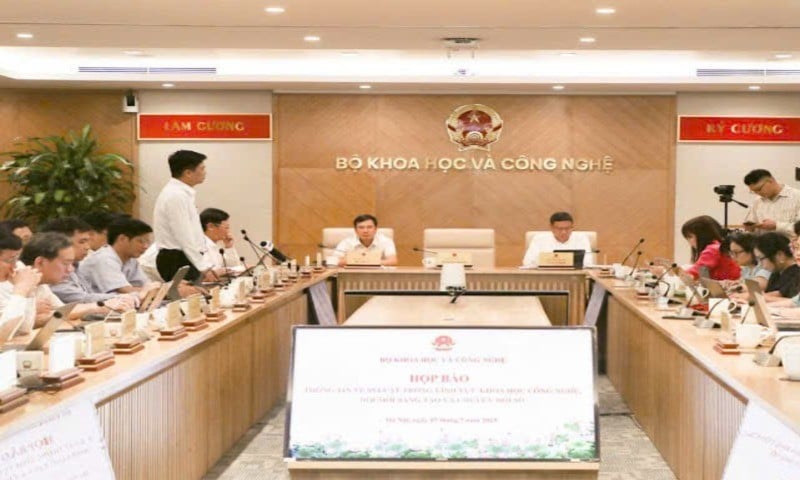
Two Deputy Ministers of Science and Technology, Mr. Bui The Duy and Mr. Le Xuan Dinh, co-chaired the press conference.
The five laws introduced are: Law on Science, Technology and Innovation, Law on Digital Technology Industry, Law on amending and supplementing a number of articles of the Law on Product and Goods Quality, Law on amending and supplementing a number of articles of the Law on Technical Standards and Regulations and Law on amending and supplementing a number of articles of the Law on Atomic Energy.
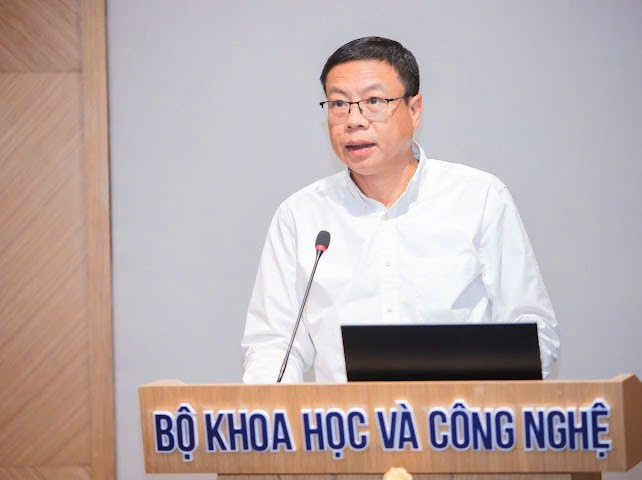
Determined to remove institutional bottlenecks
Deputy Minister of Science and Technology Le Xuan Dinh shared at the press conference: "Although they were all drafted 1 to 2 years ago, the content of these Laws has been almost completely rebuilt, with the spirit of deeply absorbing the major policies and ideas of Resolution 57-NQ/TW of the Politburo issued on December 22, 2024".
The revision and supplementation of laws not only aims to update practices, but also clearly demonstrates the determination to remove institutional bottlenecks that have long been considered major barriers to the development of science and technology, innovation and digital transformation.
These are fundamental laws, creating an important legal corridor for the development of science, technology, innovation and digital transformation in the new period, contributing significantly to the completion of the Party's strategic goal of turning the country into a high-income country by 2045.
The Law on Digital Technology Industry comprehensively regulates the fields of digital technology, semiconductors, artificial intelligence (AI) and digital assets, with special preferential policies for key projects in these fields. For the first time, the “Make in Vietnam” program is legalized, promoting domestic design, production and technology transfer.

According to Deputy Minister of Science and Technology Bui The Duy, the Law on Science, Technology and Innovation not only concretizes the spirit of Resolution 57-NQ/TW of the Politburo but also demonstrates the vision and aspiration to turn Vietnam into a powerful nation through the development of science, technology and innovation. For the first time, innovation is placed on par with Science and Technology, demonstrating a fundamental change in development thinking.
Emphasizing the Law amending the Law on Technical Standards and Regulations and the Law amending the Law on Product and Goods Quality, Deputy Minister Bui The Duy affirmed that these two laws mark a comprehensive innovation in thinking and management methods in the field of standards, measurement and quality.
The revised Atomic Energy Law also creates a comprehensive legal framework, consistent with the guidelines of the International Atomic Energy Agency (IAEA). The law identifies nuclear power as a national strategy, contributing to ensuring energy security and reducing carbon emissions.
New and breakthrough points of 5 laws
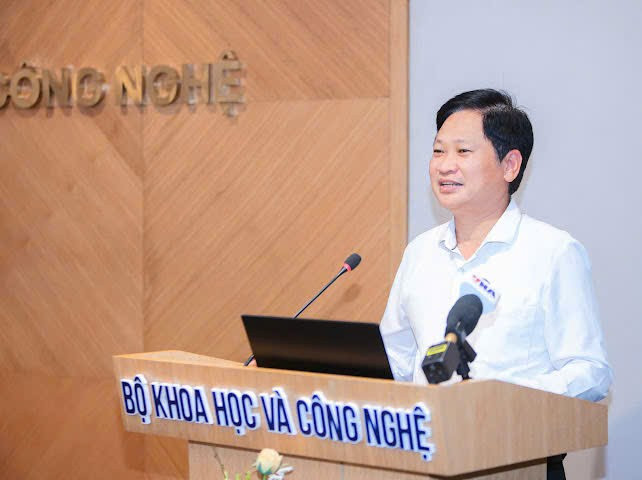
Mr. Nguyen Khac Lich, Director of the Department of Information Technology Industry, said that the Law on Digital Technology Industry, which will take effect from January 1, 2026, is a major turning point in establishing a legal framework for new fields such as the semiconductor industry, AI and digital assets. The Law on Digital Technology Industry stipulates a strategy for developing specialized chips and linking global supply chains.
For AI, the law sets out the principle of “human-centeredness”, requiring AI digital technology products to have identification marks, and the State provides the highest preferential policies to promote research, development, deployment, and use of AI. This is also the first time that digital assets, including virtual assets and crypto assets, have guaranteed ownership, transactions, and security.
Essential digital infrastructure such as AI data centers, concentrated digital technology parks, and national laboratories are prioritized for investment, creating a foundation for the strong development of digital transformation and Vietnam's digital economy.
Regarding the Law on Science, Technology and Innovation, which will take effect from October 1, 2025, Mr. Nguyen Phu Hung, Director of the Department of Science, Technology and Innovation, said that the Law represents a fundamental change in development thinking, for the first time including innovation in the law and placing it on par with science and technology.
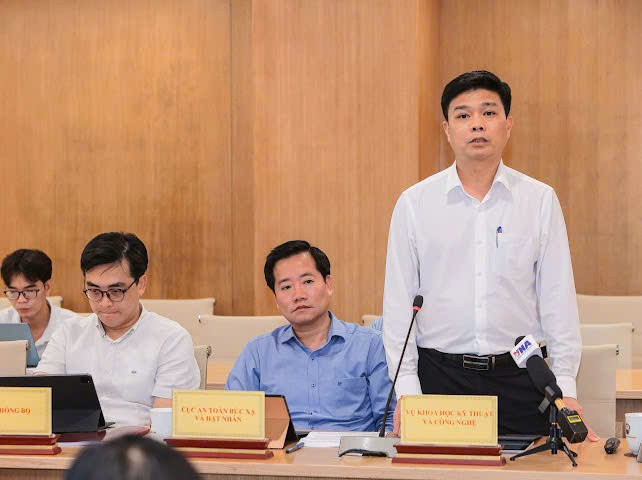
There are 10 new points in the Law on Science, Technology and Innovation. In particular, innovation is identified as a key driving force to enhance national competitiveness, promote socio-economic development, ensure national defense and security, and improve people's quality of life. At the same time, innovation is expected to contribute 3% to GDP growth, while science and technology only contributes 1%.
The Law on Science, Technology and Innovation also shifts the management focus from input control to result management and output efficiency assessment, allowing organizations and individuals performing research tasks to own research results for commercialization, and to enjoy at least 30% of the income from commercialization of research results.
These regulations create motivation for innovation, the spirit of daring to think and do in research, research towards practical results, closely linking science and technology with socio-economic development.
Regarding the two Laws, the Law on Product and Goods Quality and the Law on Technical Standards and Regulations, which are attracting public attention, Mr. Ha Minh Hiep, Chairman of the National Committee for Standards, Metrology and Quality, said at the press conference that the Law amending and supplementing a number of articles of the Law on Product and Goods Quality, effective from January 1, 2026, demonstrates a new management mindset, shifting from an administrative management model to risk-based quality management; from pre-inspection to post-inspection based on data and digital technology; from an incentive mechanism to binding responsibility, transparency and strict sanctions.
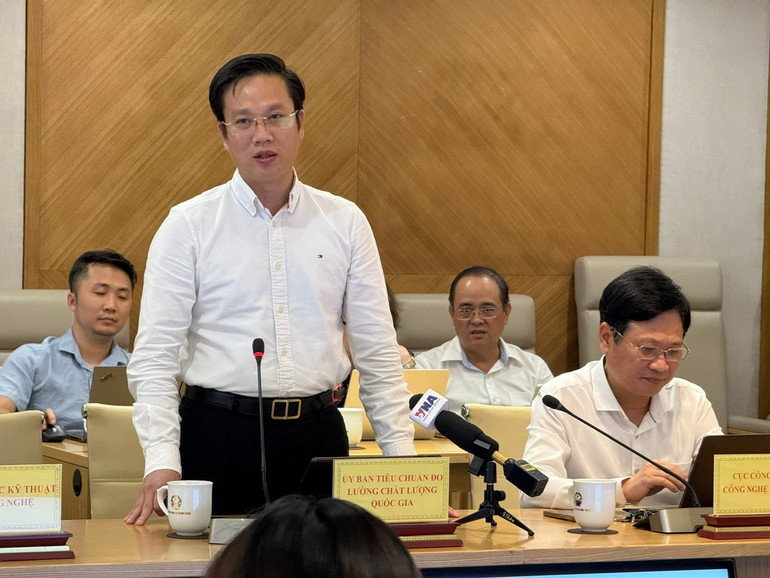
For the first time, the Law on Product and Goods Quality requires the establishment of a national product and goods quality monitoring system, inter-sectoral data connection, post-inspection support, and quality risk handling. At the same time, clear management regulations for goods traded on digital platforms are required, enhancing the responsibility of sellers and intermediary platforms in ensuring quality and handling consumer complaints.
Meanwhile, the Law amending and supplementing a number of articles of the Law on Standards and Technical Regulations, which also takes effect from January 1, 2026, marks a comprehensive innovation in thinking and management methods in the field of standards, measurement and quality.
Mr. Ha Minh Hiep emphasized: “For the first time, the National Standards Strategy is legalized as a long-term orientation tool; at the same time, establishing a National Database on standards, measurement, and quality”.
The law also stipulates the principle of “one product, one standard” nationwide, ending overlapping management and increasing enforcement efficiency. In particular, the mechanism of unilateral recognition of international assessment results will help high-tech enterprises quickly access the market.
With the revised Law on Atomic Energy coming into effect from January 1, 2026, Director of the Department of Radiation and Nuclear Safety Nguyen Hoang Linh shared that the revised Law on Atomic Energy has established a separate chapter on nuclear power plants, covering the entire project life cycle, from location, design, construction, operation to closure. In particular, it allows flexible application of international standards, standards of the technology supplier country, suitable to Vietnam's conditions. This is a necessary preparation step for the implementation of the Ninh Thuan nuclear power project, contributing to ensuring energy security and reducing carbon emissions.
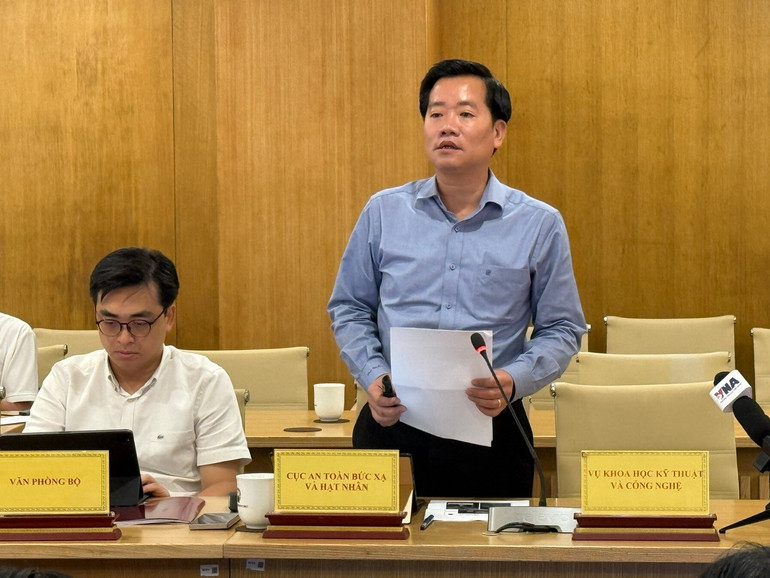
Article 5 of the 2025 amended Law on Atomic Energy is a policy breakthrough compared to the 2008 Law, shifting from a general orientation to a specific, modern and integrated one. The Law not only creates conditions for the development of atomic energy, but also aims to: Master technology, Ensure safety and security, Mobilize diverse resources, Link with sustainable development strategy and social security.
At the press conference, Deputy Minister of Science and Technology Le Xuan Dinh emphasized once again that these five laws not only create a legal foundation for effectively implementing national policies and strategies on science and technology, innovation and digital transformation, but also play an important role in ensuring consistency and synchronization in state management, especially when the two-level government system is entering the stage of actual operation.
Source: https://nhandan.vn/tao-nen-tang-trien-khai-hieu-qua-chinh-sach-chien-luoc-quoc-gia-ve-khoa-hoc-cong-nghe-doi-moi-sang-tao-va-chuyen-doi-so-post892243.html




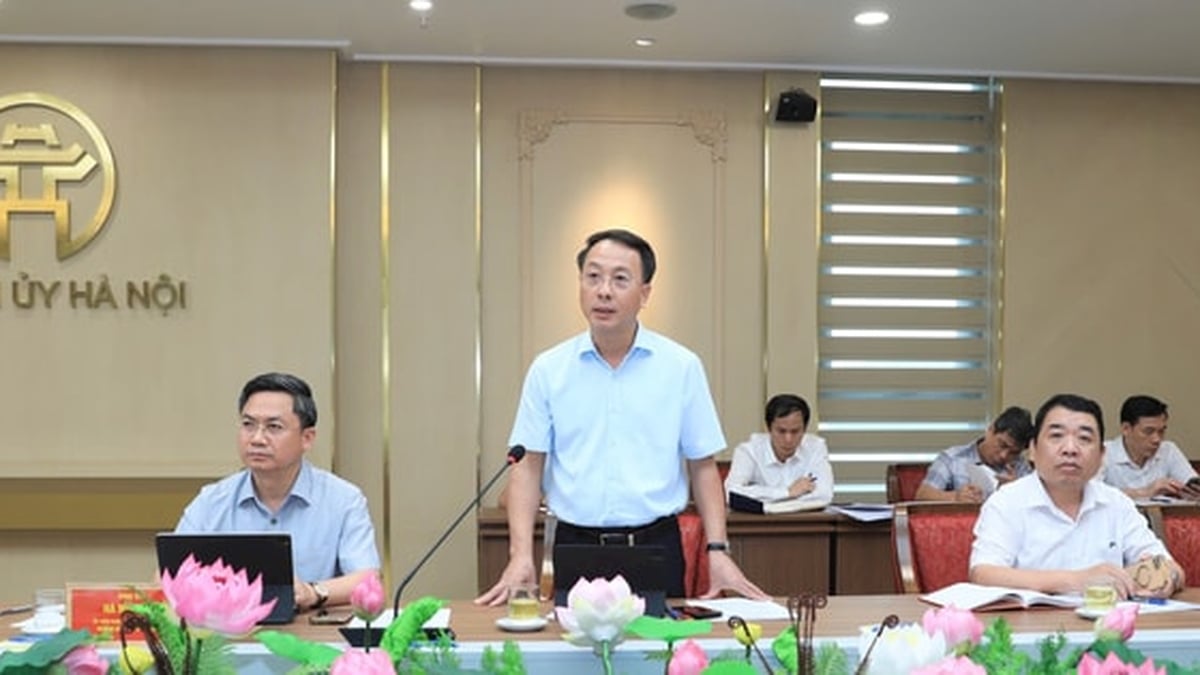


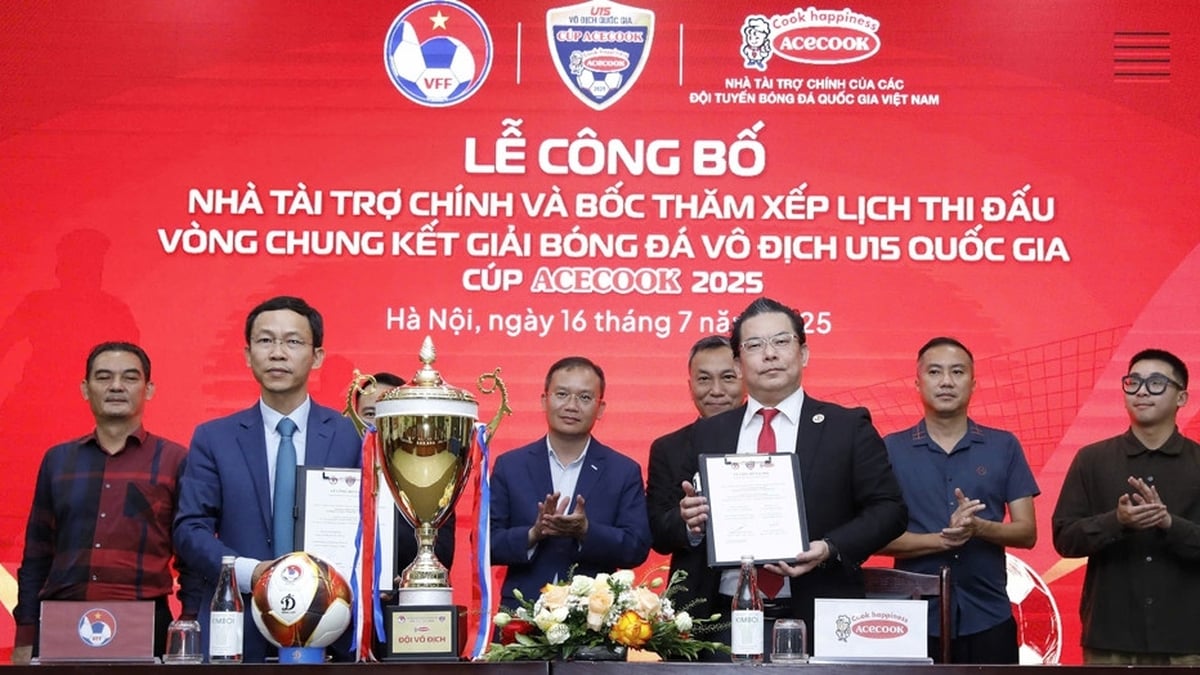












































![[Maritime News] More than 80% of global container shipping capacity is in the hands of MSC and major shipping alliances](https://vphoto.vietnam.vn/thumb/402x226/vietnam/resource/IMAGE/2025/7/16/6b4d586c984b4cbf8c5680352b9eaeb0)













































Comment (0)